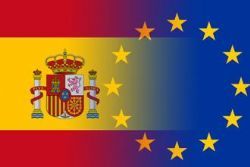- Business
- Childbirth & Education
- Legal Formalities
- Motoring
- Other
- Pensions & Benefits
- Property & Accommodation
- Taxes
- Airports and Airlines Spain
- Paramount Theme Park Murcia Spain
- Corvera International Airport Murcia Spain
- Join us for Tea on the Terrace
- When Expat Eyes Are Smiling
- Meet Wincham at The Homes, Gardens & Lifestyle Show, Calpe
- QROPS 2014
- Spain Increases IHT in Valencia & Murcia
- Removals to Spain v Exports from Spain
- The Charm of Seville
- Gibraltar Relations
- Retiro Park : Madrid
- Community Insurance in Spain
- Calendar Girls
- Considerations when Insuring your Boat in Spain
- QROPS – HMRC Introduces changes that create havoc in the market place
- QROPS – All Change From April 2012
- Liva & Laia : 15th November

The European Commission is in discussions with Spain on how to ensure a smooth exit from their bailout in the next months, but this may succeed without any special arrangements, EU Economic and Monetary Affairs Commissioner Olli Rehn said.
Spain's programme, under which it borrowed €41 bln from the IMF and Eurozone to recapitalise its banks, expires at the end of 2013.
"We are currently holding discussions within the Eurogroup, to see what is the best way to successfully exit the programme," Rehn told Reuters.
He said that reforms that both Spain and Ireland have pledged in exchange for the financial support were on track and the economies of both were growing stronger.
"The principle that it is better to be safe than sorry prevails and we will look into what are the best ways to ensure a successful exit from the programmes," Rehn said.
Meanwhile, concerns about how Spain's economy will function in an era of tighter credit and more constrained housing markets continue to weigh on the prospects for its banks and government.
The IMF on Tuesday gave Ireland the green light to ease up on budget austerity in 2014 and predicted a solid 1.8% economic expansion as well as a return to minimal growth in both Italy and Spain.
Some policy-makers in Brussels have said that Spain and Ireland would be wise to seek a new credit line, just in case.
Even if never used, it would enable the ECB to include Ireland or Spain in its programme of government bond purchases, sending a powerful signal of confidence to markets.
But such credit lines would also come with conditions and further close monitoring - limiting the choices in economic policy-making that governments accept only as a last resort.
Rehn said that it was far too early to discuss the arrangement for Portugal's exit from its bailout programme. Lisbon's financial lifeline from the euro zone will end in the middle of 2014. He noted Portuguese exports and domestic demand were on the rise but said the country was still facing many challenges.










